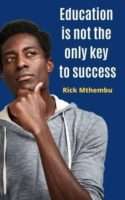A lot has been written on how saintly Nelson Mandela was despite all his protest to this elevation to sainthood status. Indeed the very image and name of Nelson Mandela enters into most people’s imagination as a benevolent man that was prepared to do all in sacrificing himself to free people from the bondage that they were in.
But what is little known about ‘saint’ Mandela and remains little articulated is that he didn’t believe in giving to beggars, but rather preferred that they learned how to provide for themselves without begging.
Shortly after the announcement of the date of the first free and fair democratic elections, Mandela set about himself a task to go around the country to hear the views and expectations of the people from a party that will govern in a free South Africa.
One of the things that in his book, ‘Long walk to freedom’ he reports to have told the people was that freedom and democracy were not going to bring about significant changes to their material lives overnight and that they would still have to work very hard to have things changed.
“I thought that I should be frank to them and tell them the truth that if they spend all their money on shebeens they won’t be able to own a Mercedes.”
There he is – the Mandela less spoken about, a Mandela that believes in the virtues of hard work and setting goals for yourself rather than being perpetually dependent. Mandela is gone now, only remains in world history books and through legacy that he has left behind. But I think that if his story was really told holistically we wouldn’t be having a disenchant generation now that thinks he left owing them something.
Mandela believed in living for a purpose, in pursuing goals for oneself and standards to achieve rather than crying all day because of believing the world owes you something.
The latter involves hard work and requires also discipline and commitment. Under apartheid when situation was difficult Mandela was among the very few Africans to own and drive a car, graduate from university and run a legal firm. When he appeared in the Rivonia trial, the first words he made were those of describing his achievements despite adversity he faced. Nothing ever good ever comes easily.
This generation, in unfairly generalising terms should rather use what our previous generation of the Mandela’s, Albert Luthuli, Tambo, and many others bequeathed to us to improve our difficult lot in life and those of our posterity.


